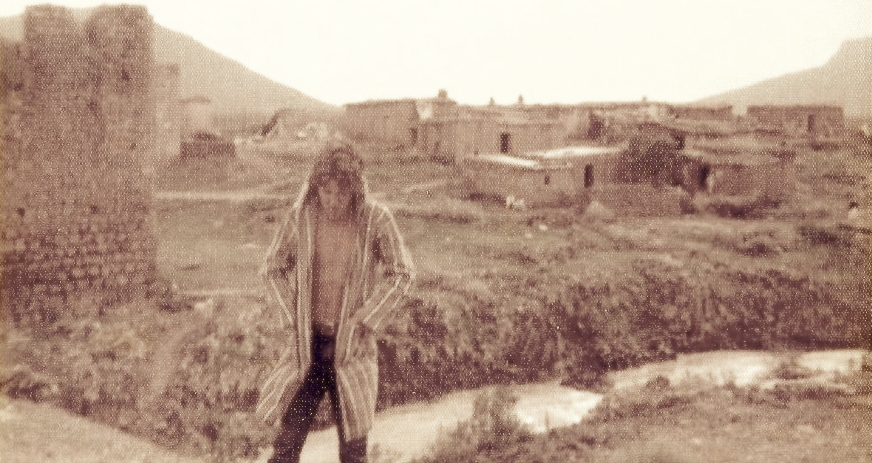The people, far more than the places, are the real reason to travel
One of the benefits of hitchhiking is meeting so many new and unexpected people on the road. Why—and you have to ask yourself this question—why would a driver stop his car and let a complete stranger hop in and invade his space? Some people, it turns out, are just wonderful human beings. And then there are those that you just meet here and there—at a hostel kitchen, in a campground, on a train or a bus, even just standing at a corner. Here are a few of the crazy, wonderful, delightful folks who played a role in Just One Little Hitch.
George Whitman, the brilliant, visionary, and crotchety owner of the fabled Shakespeare and Company in Paris, whose bookshelves pulled away from the walls to reveal Murphy beds for traveling writers.
“You’re not leaving, are you?” George asked, as if I’d hurt his feelings. “We have beds, if you need a place to stay. I’d sort of taken to you.” —George Whitman
Jack and Jackie, the nouveau-riche couple who gave the author a ride in Devon. Jackie’s smile shined like a beacon. Jack’s accent was unintelligible, but his generosity was unforgettable.
“Ya loik da Too Fowzenee, moi ’ansum?” he asked, impenetrably. “Scot upgri’ed trim, i’ ’as, one ’n’ six mo’er, reckangle ’eadlamps, body strips, vinyl roof. Classes whudda is, ass roi’.” —Jack
Mal and Geoff, young Australian architects who shared with the author the beauties of Moorish design, the ridiculousness of trying to ride a camel, and the pain of losing everything.
“Ack! Bloody ankle biters! Get ’em off! Geoff, save me!” —Mal
Steve Hobson, “a right pit-yacker” from County Durham, doomed to an early death and eager to live his life to the fullest.
“I’ll ride from the tip of Denmark to the toe of Italy’s boot. Then I’ll ride from Portugal to the Iron Curtain, and if they’ll let me in I’ll just keep going to Red China.” —Steve Hobson
Udo Kortz, the German Army lieutenant who kicked off the author’s hitchhiking journey by giving him his first lift, and much more besides.
“When a man is twenty and not a Communist, he has no heart. When a man is fifty and still a Communist, he has no intelligence.” —Udo Kortz
“Mabel,” the gorgeous young hiker who was fascinated by the author (who returned the feeling).
“We’ve known each other for eight hours and already you’ve forgotten my name is Mabel,” she said in mock indignation. “I don’t think I like you anymore.” —”Mabel”
Ted Joans, the Beat Generation poet and artist, friend of Dali and Kerouac, who held late-night chat sessions with the author and others in Paris.
“I know the cat from seeing him in New York,” he said of Ferlinghetti, “but I’ve never actually been to San Francisco. Crazy, right?” —Ted Joans
Gwyn and Jane, the pretty Welsh girls who charmed the socks off the author with their looks and lilting accents.
“Let’s share a room, save the extra money.” —Gwyn and Jane
Didress, the Westernized Moroccan who knew every alleyway in the dark heart of the Fez medina.
“The man was not angry with you. The boy who sold you the djellaba gave it to you very cheap because he planned to keep the money and not record the sale. He was stealing from the owner.” —Didress
Harry Luck Twelvetrees and his sidekick Gordon, two veterans of World War I—one of whom targeted the author as “Sonny Jim,” and not in a nice way…
“When you killed a man back in our day, you had to look him in the eye, face-to-face. That’s the kind of war we had to fight, Sonny Jim.” —Gordon
And so many, many more…

